Trip 01 / Turkey
Bodrum, Turkey
As resort towns and villages flourish along Turkey’s once-sleepy Turquoise Coast, the Macakizi hotel has evolved with the times into a true luxury escape.
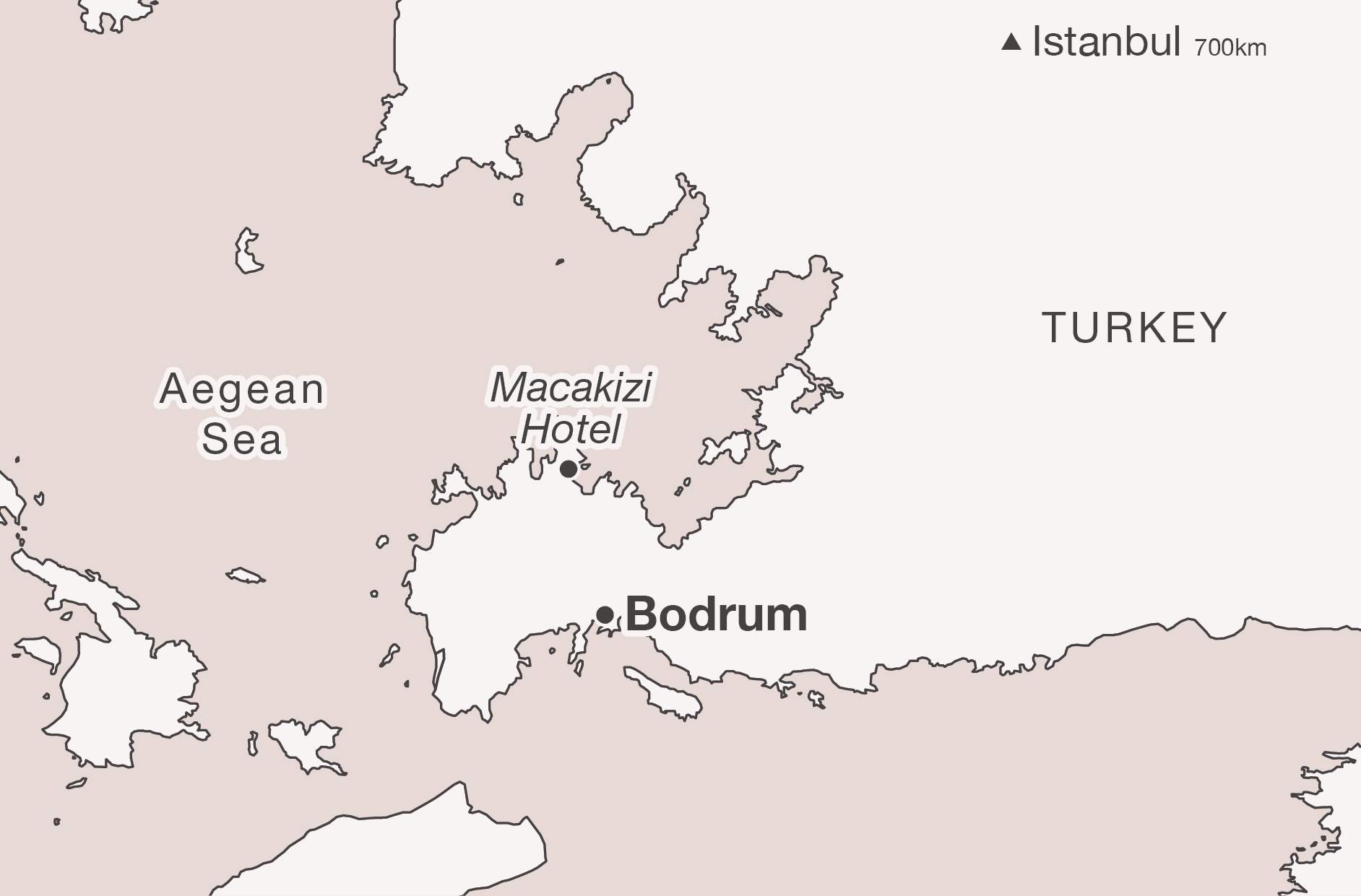
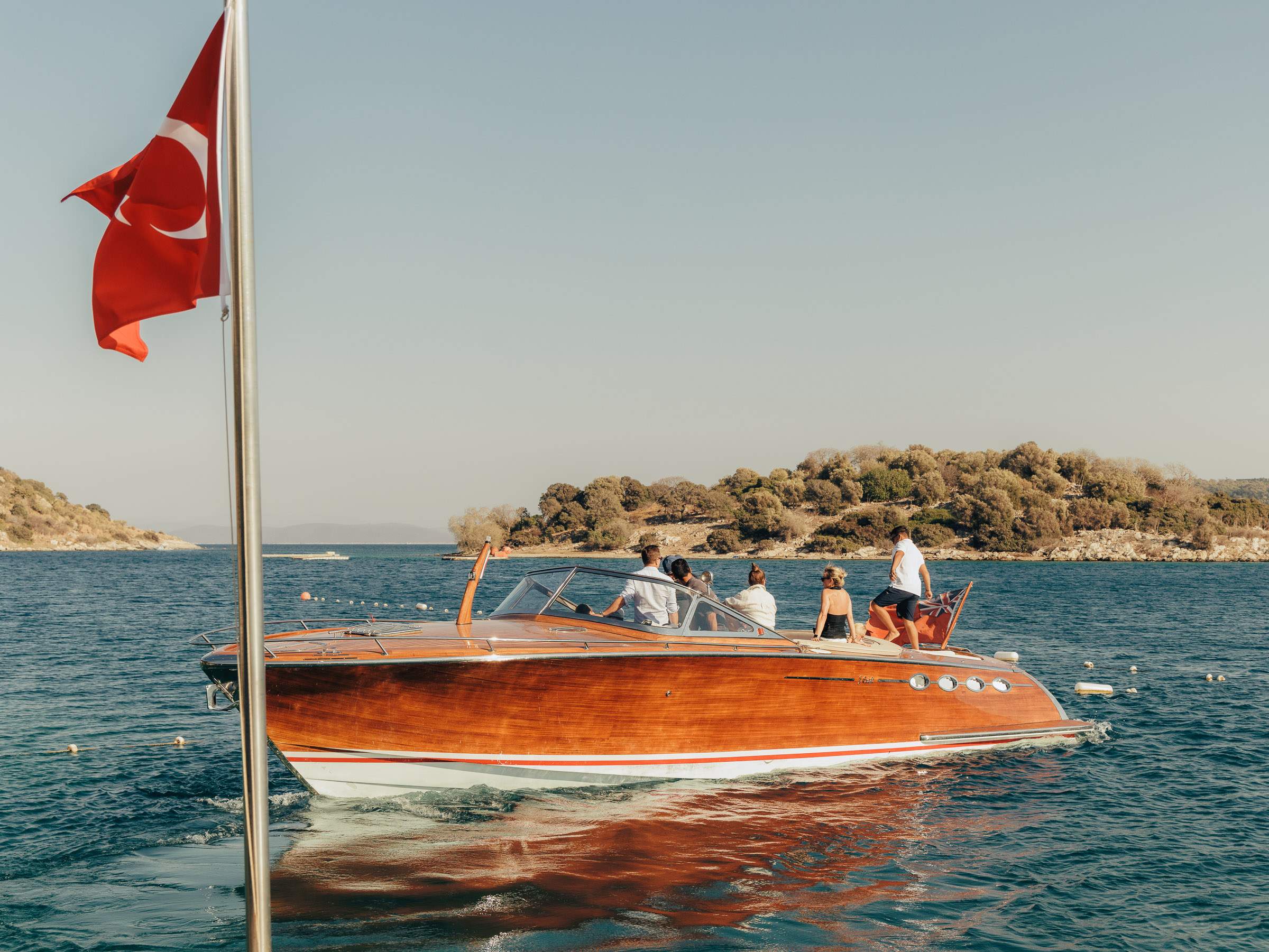
Macakizi is almost hidden by Golturkbuku bay’s olive groves, fuchsia-hued bougainvillea and pine trees. The restaurant, hotel and beach club is nestled in one of the most picturesque inlets on Turkey’s Bodrum peninsula. The venture’s owner, Sahir Erozan, believes that its charm lies in the surrounding nature, as well as in its family roots. In 1977 his glamorous and bohemian mother, Ayla Emiroglu, opened the original Macakizi hotel at another site in Bodrum. “Back then, you would see cows grazing on a stretch of land behind the hotel,” says Erozan, squinting in the bright, late-summer sunlight as it glints off the water. “It was a different time. Bodrum still had an untouched beauty.”
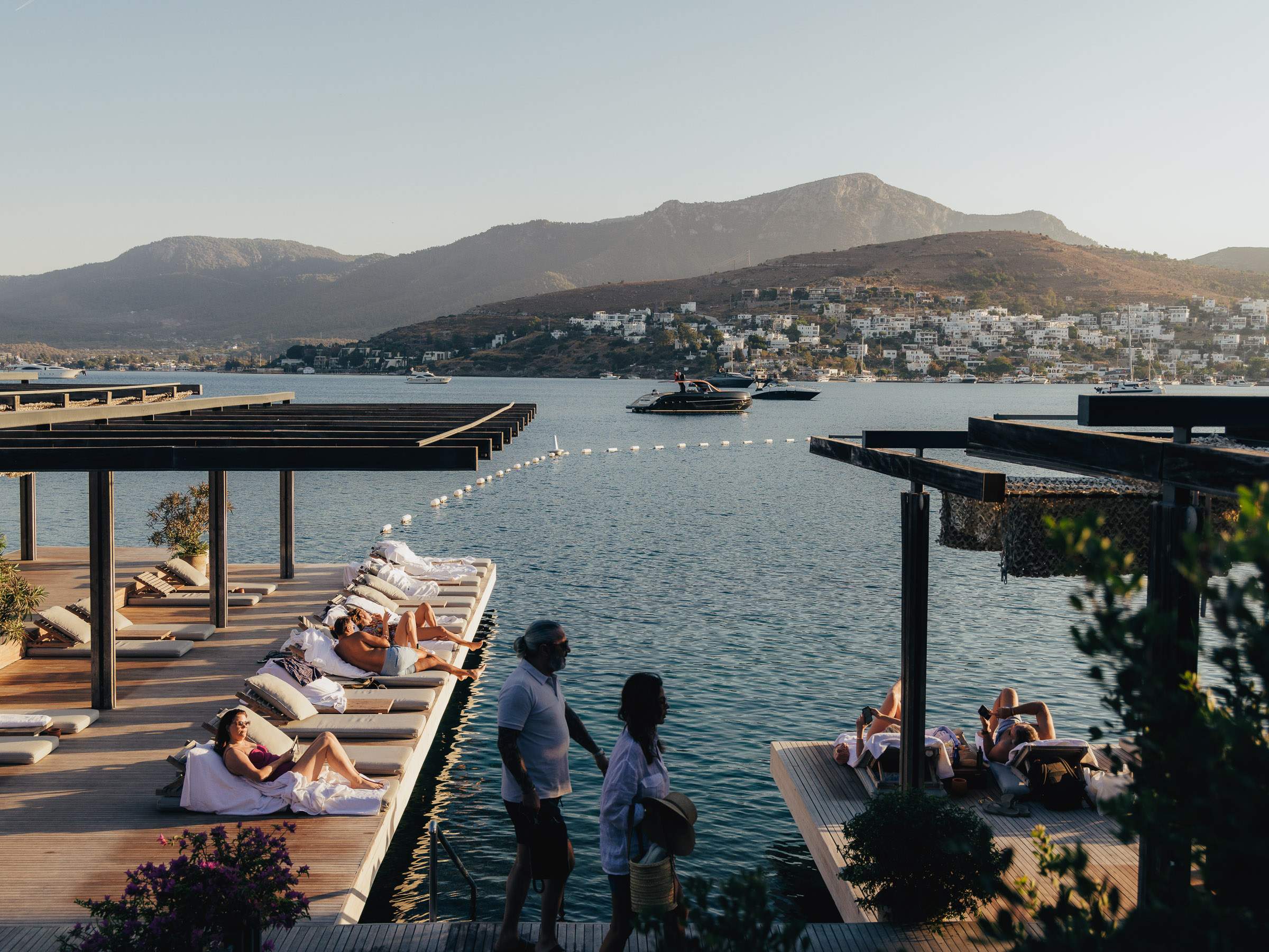
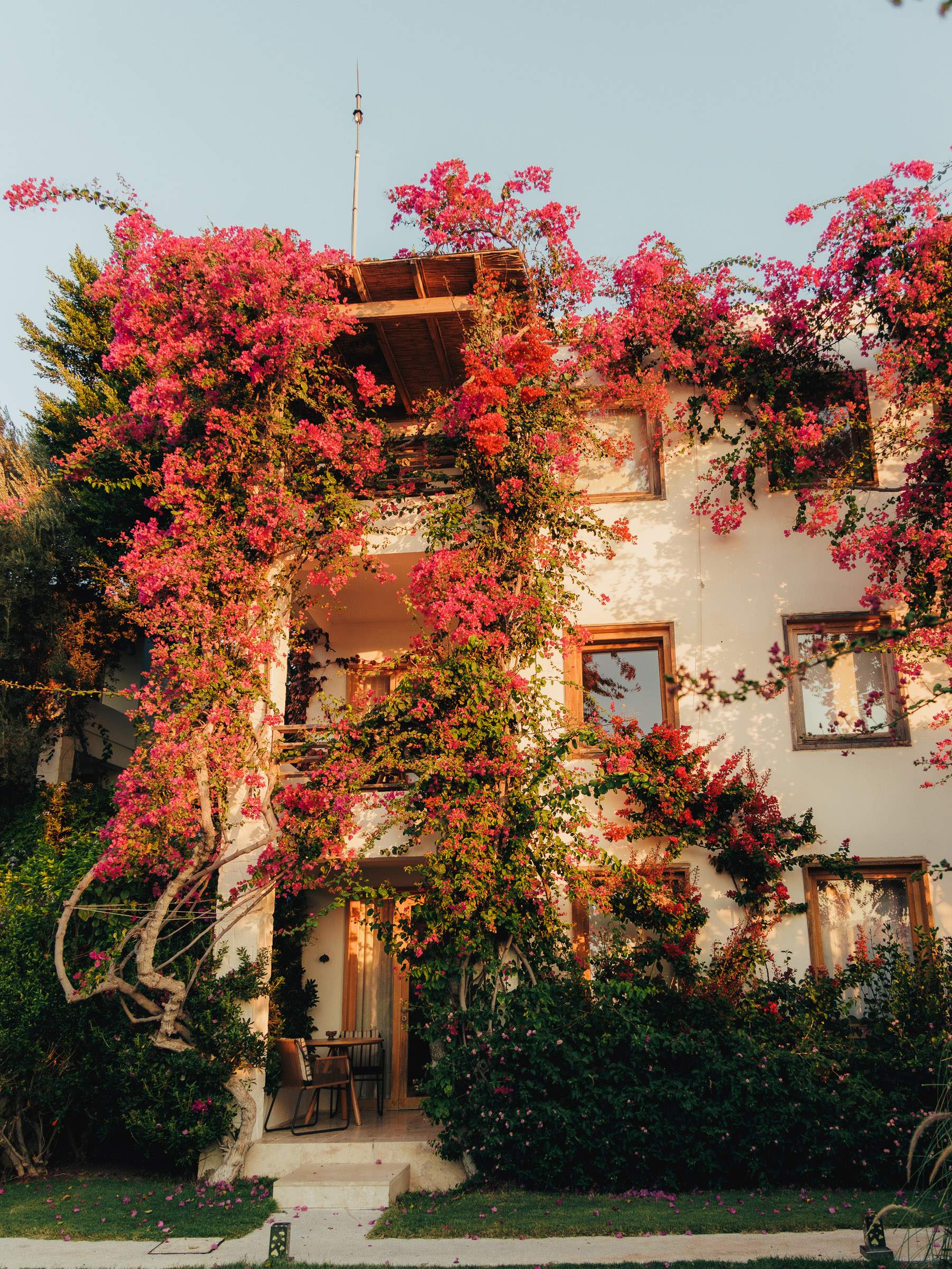
Macakizi relocated to Golturkbuku in 2000, having outgrown those humble beginnings. It originally offered just 16 guest rooms; now its team of about 350 staff oversees a 72-key hotel with four kitchens. The ambitious expansion didn’t stop there. In 2018 the brand added a 10-room private villa, located less than five minutes away by boat. In other words, a lot has changed. When Emiroglu ran things, almost 99 per cent of the business’s clients were Turkish. Now some 75 per cent of them are international visitors.
Erozan says that, despite all of this, the fundamentals of Macakizi’s approach to hospitality are exactly as they were in the beginning. Visit it today and there’s still a sense that it’s a refuge from all that surrounds it – an oasis of calm far removed from whatever might be happening in Turkey’s economy or politics (though many movers and shakers holiday here). “We’ve always tried to be natural, kind and aware,” he says. He credits his mother with instilling in him this philosophy, which has steered him as both the industry and the business have evolved over the decades. “I didn’t go in different directions,” he says of running the company. “I kept building.”
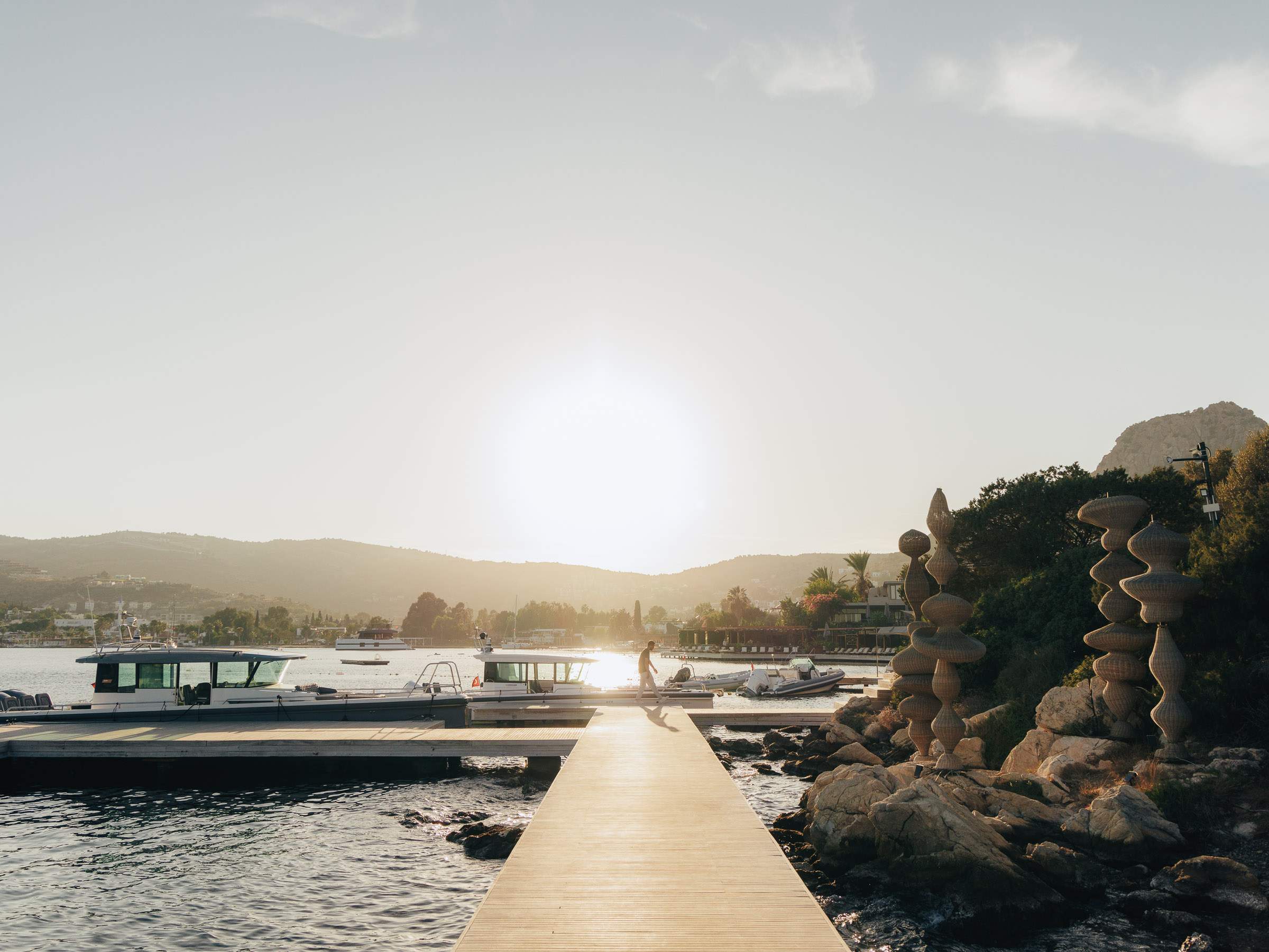
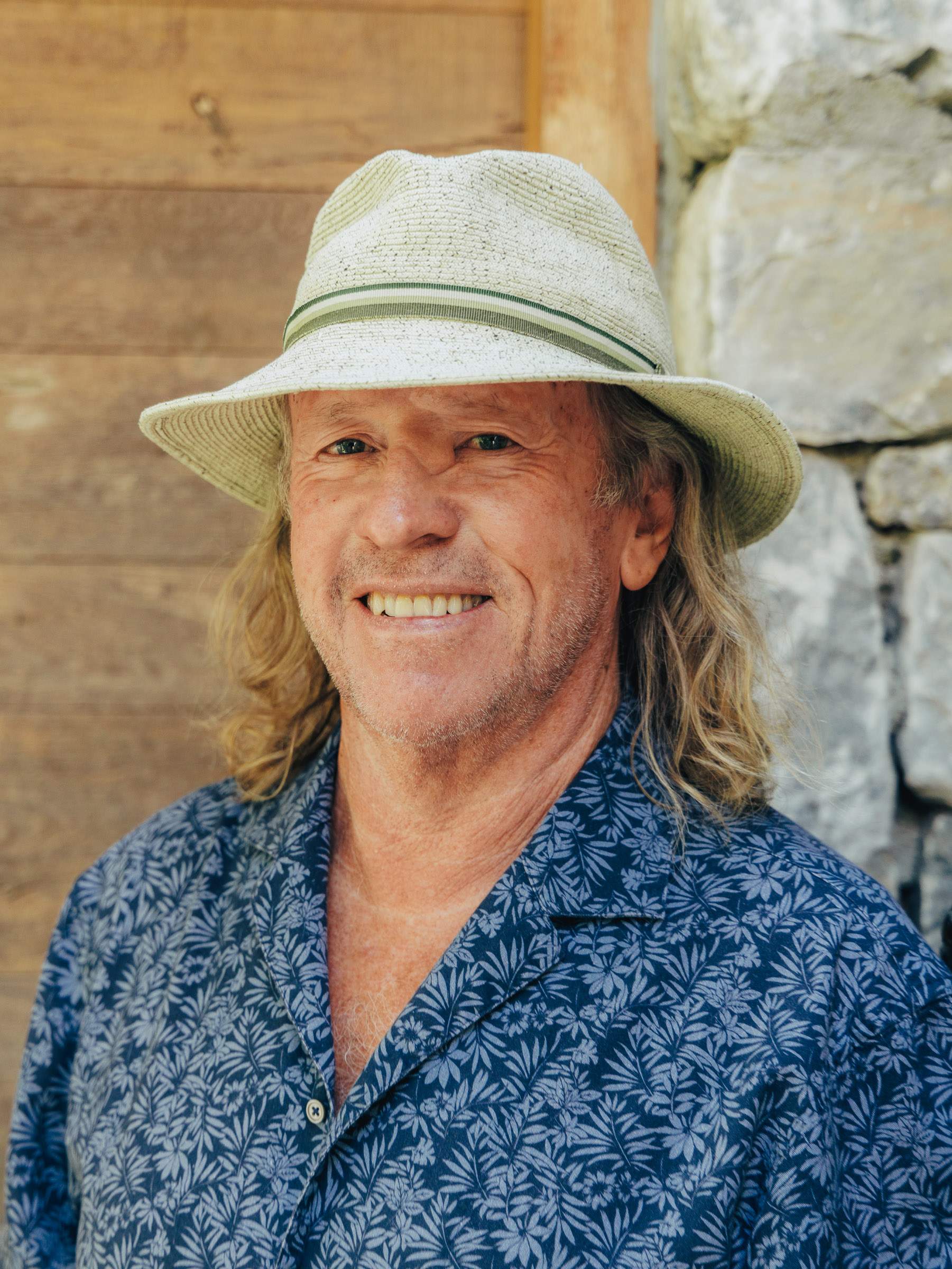
Macakizi has become a favourite retreat for notable guests, some of whom you’ll recognise. Regulars greet waiters with a kiss on both cheeks; the staff never hover awkwardly but are always on hand to help. Drinks are topped up before the sun melts the ice cubes – a service overseen by the hotel’s charismatic, Australian-born long-term manager, Andrew Jacobs.
“A lot of people don’t realise that there’s a hotel here,” says Erozan, sitting in the breakfast hall nestled in the heart of this green stretch of land overlooking the Aegean. Only about a third of the visitors are hotel guests; the rest come to enjoy the beach club, drink and dine. The property’s layout is designed to give patrons privacy. Labyrinthine pathways framed by Mediterranean shrubs link the white, two-storey villas, each of which has a private garden or a sea-facing balcony.
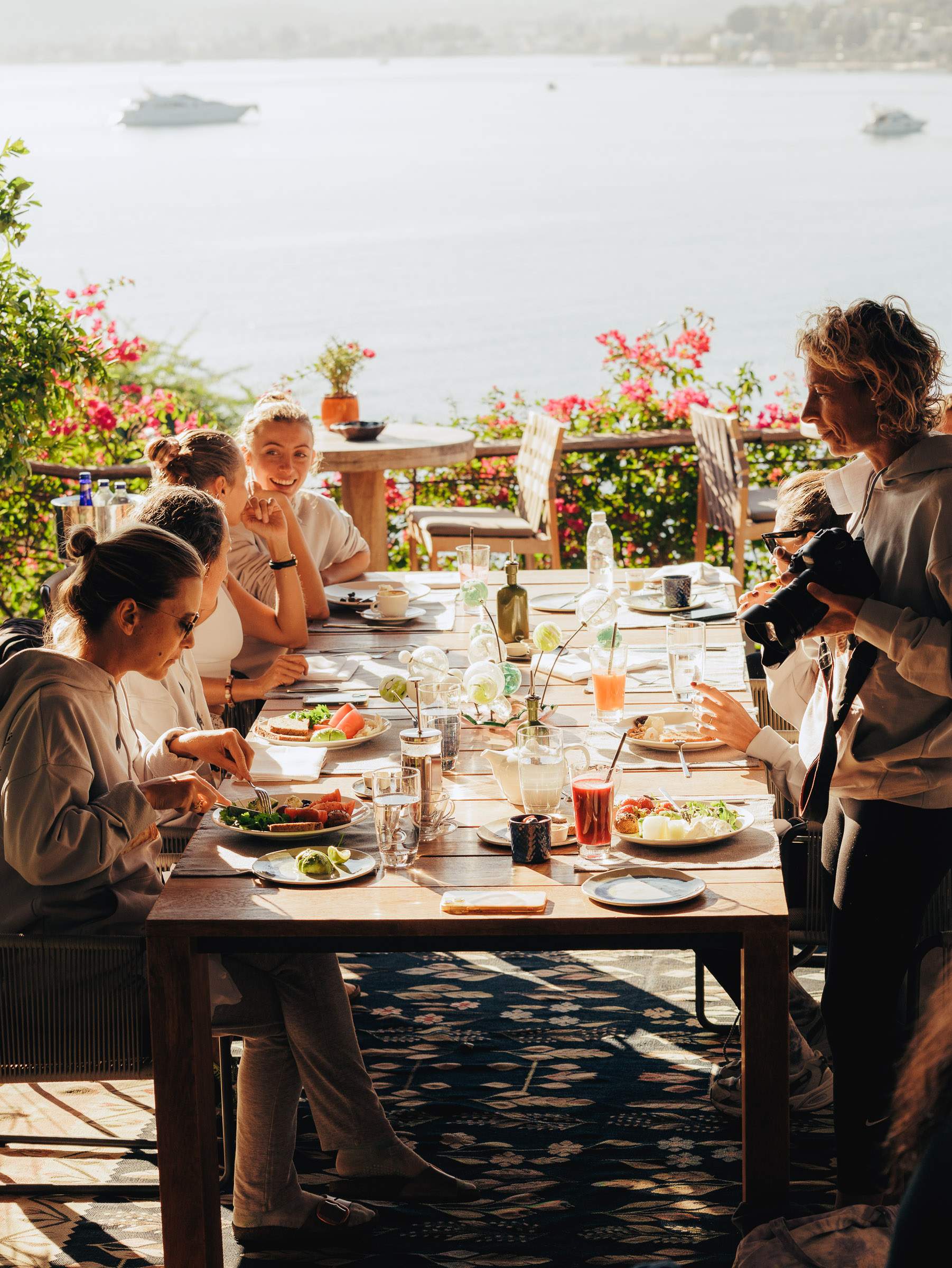
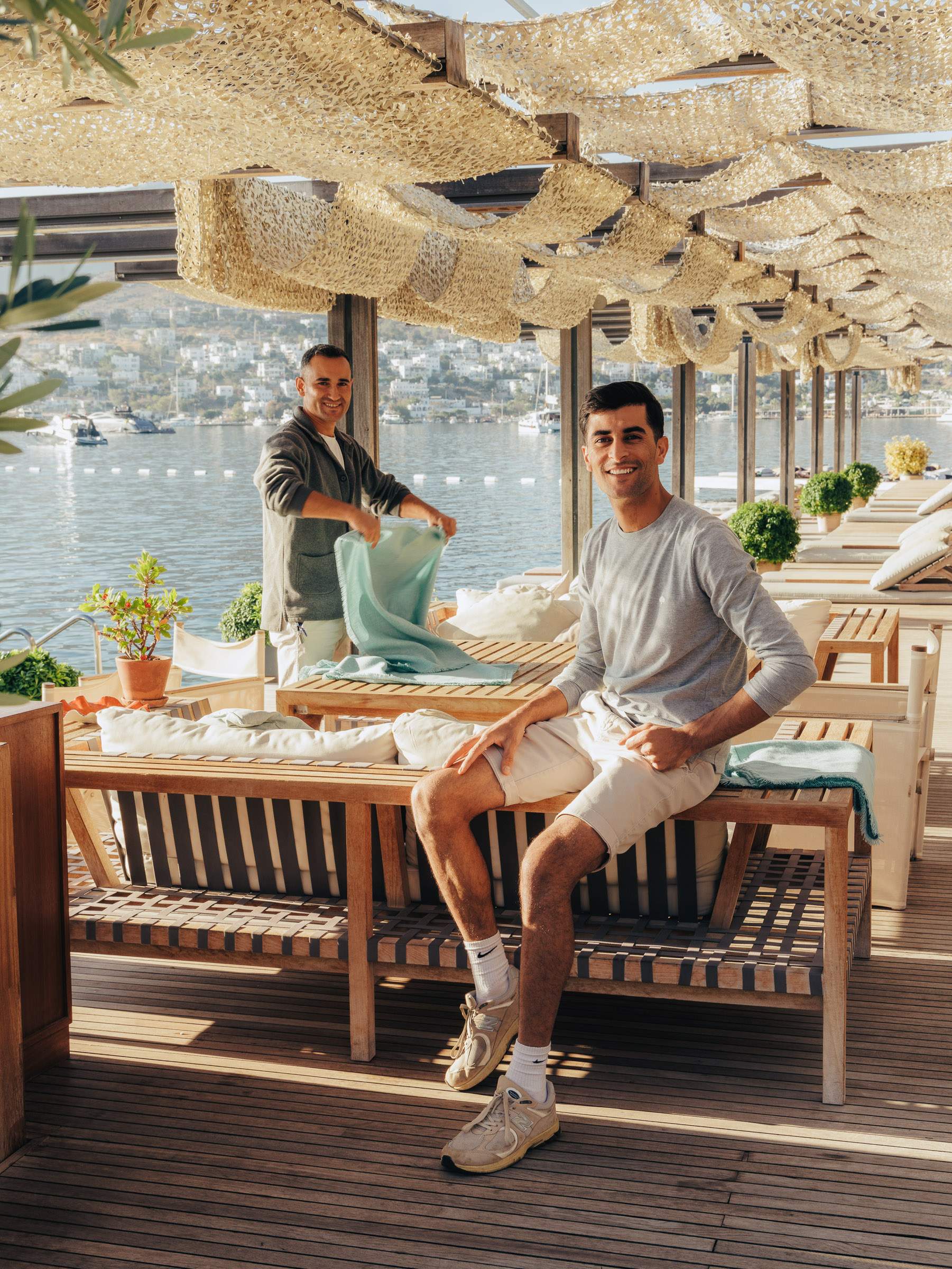
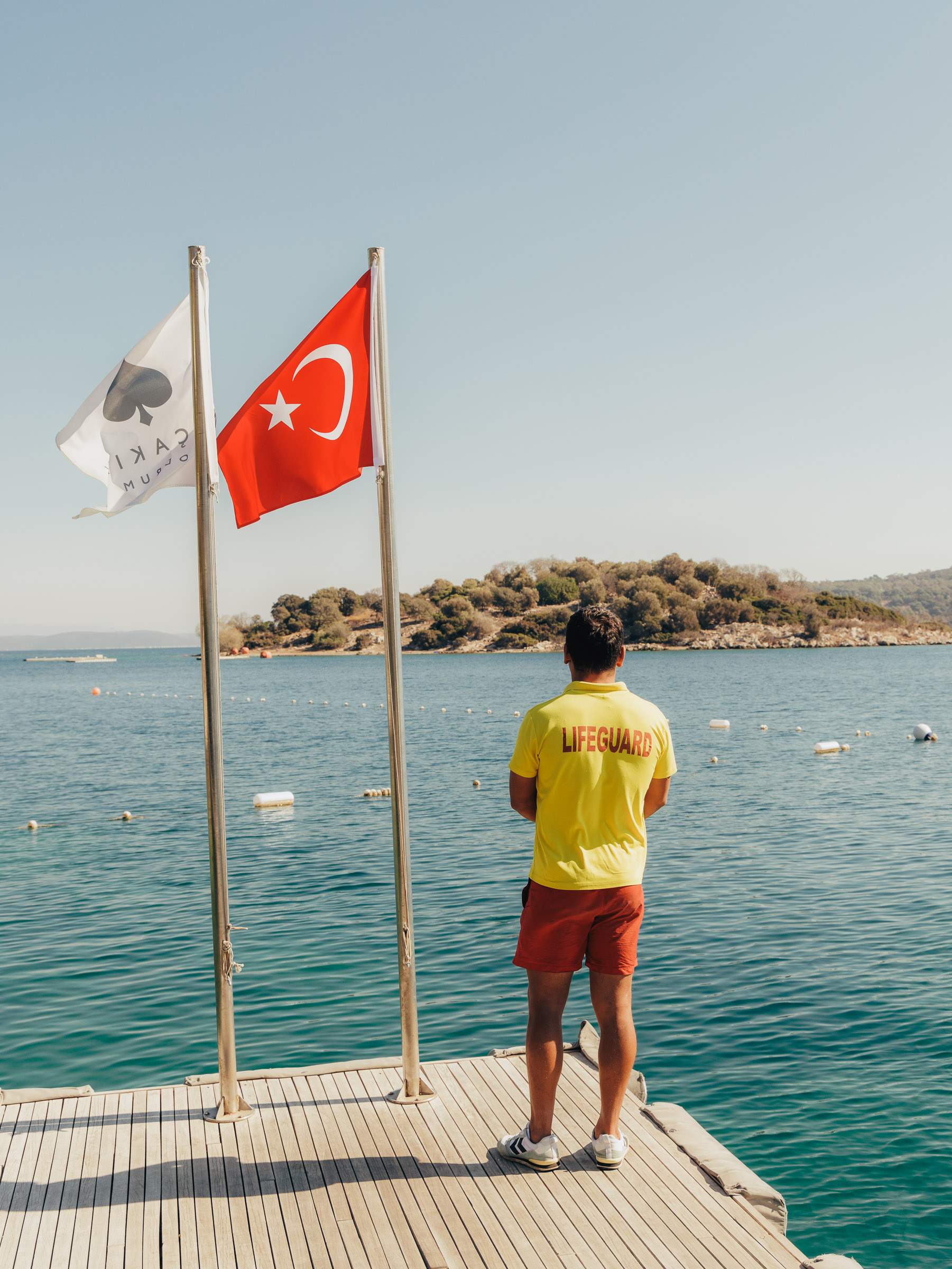
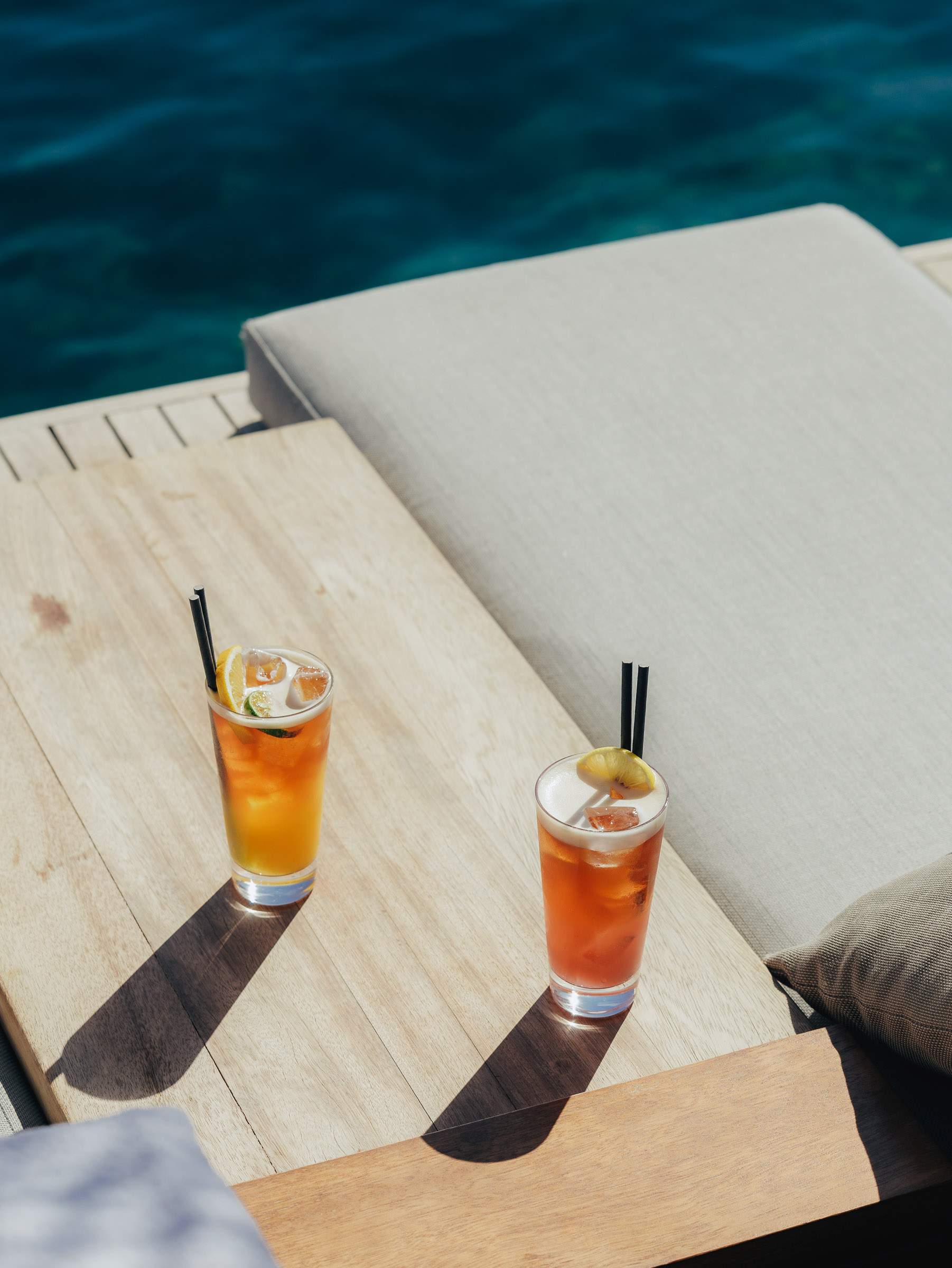
Erozan refers to the Mediterraneo Pavilion, where breakfast is served every morning and dinner is hosted on off-season nights, as “the winter garden”. It’s a striking, black-metal structure with expansive windows that make you feel as though you were sitting outside among nature. For the past three years, Macakizi has stayed open well beyond its usual summer season into winter. Built in 2019, the pavilion was designed by Ahmet Alatas; Istanbul-based firm Tabanlioglu oversaw the hotel’s reception area, built in 2000, as well as the recently opened Ayla restaurant.
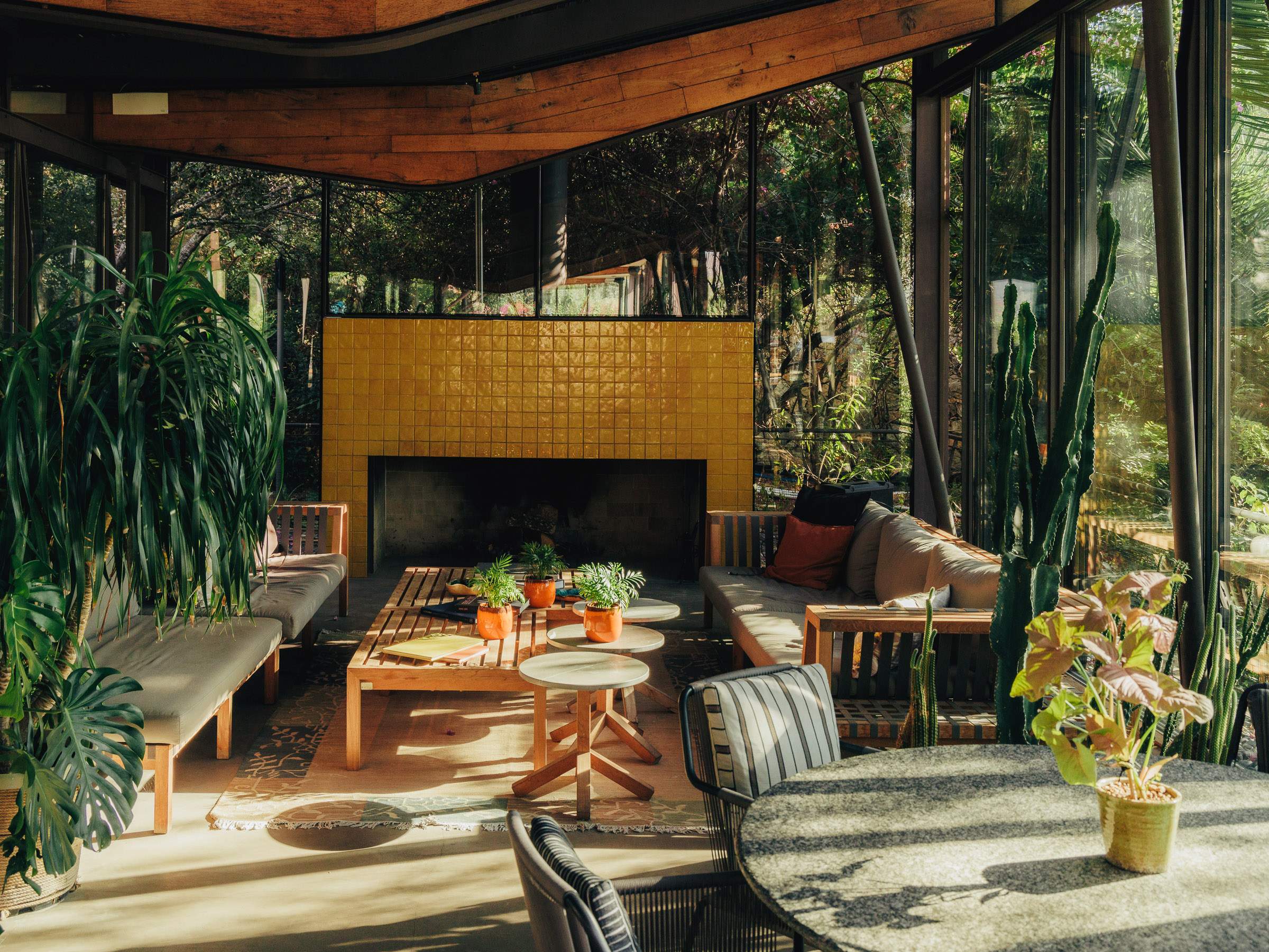
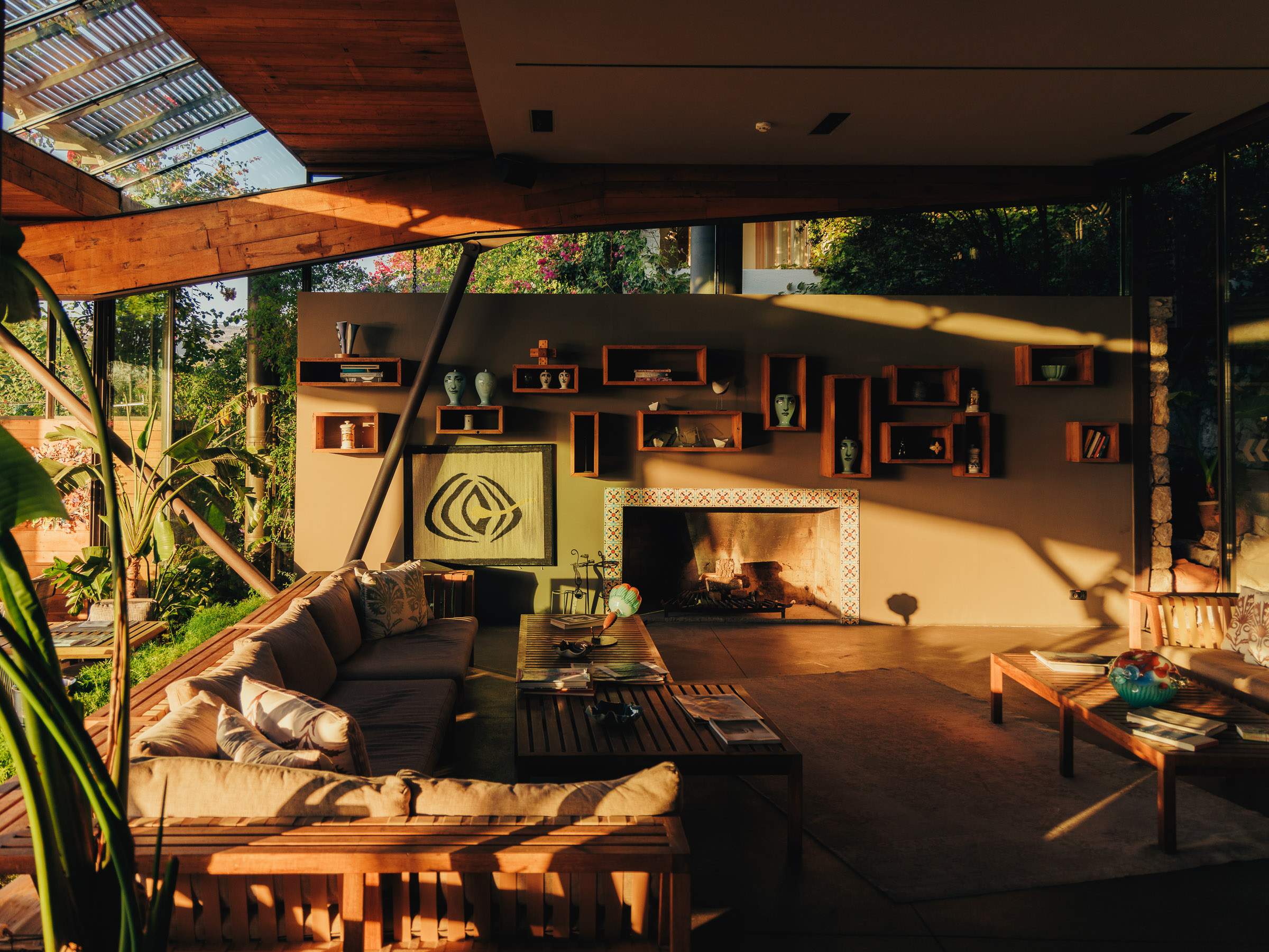
“I don’t let any architect touch the interiors,” says Erozan with a smile, peering over his round, metal-framed sunglasses. “They make things look too pristine, too uninhabited. I like some chaos. I want this place to feel lived in.” Erozan has personally overseen every detail of the hotel’s interiors, from the carpets and the lighting to the artwork. He describes his aesthetic sensibilities as “eclectic, bohemian and modern”.
That eclecticism is perhaps most evident in the art. Antonio de Felipe’s pop art painting of Audrey Hepburn hangs in the entrance next to a work by Turkish contemporary artist Haluk Akakce that features the marque of the hotel: a queen of spades playing card. It breaks the otherwise uniform layout of the couches and tables. An almost human-sized metal mirror ball by Mihat Sen is one of three statues in the pool area, exemplifying Erozan’s sometimes hard-to-define style.
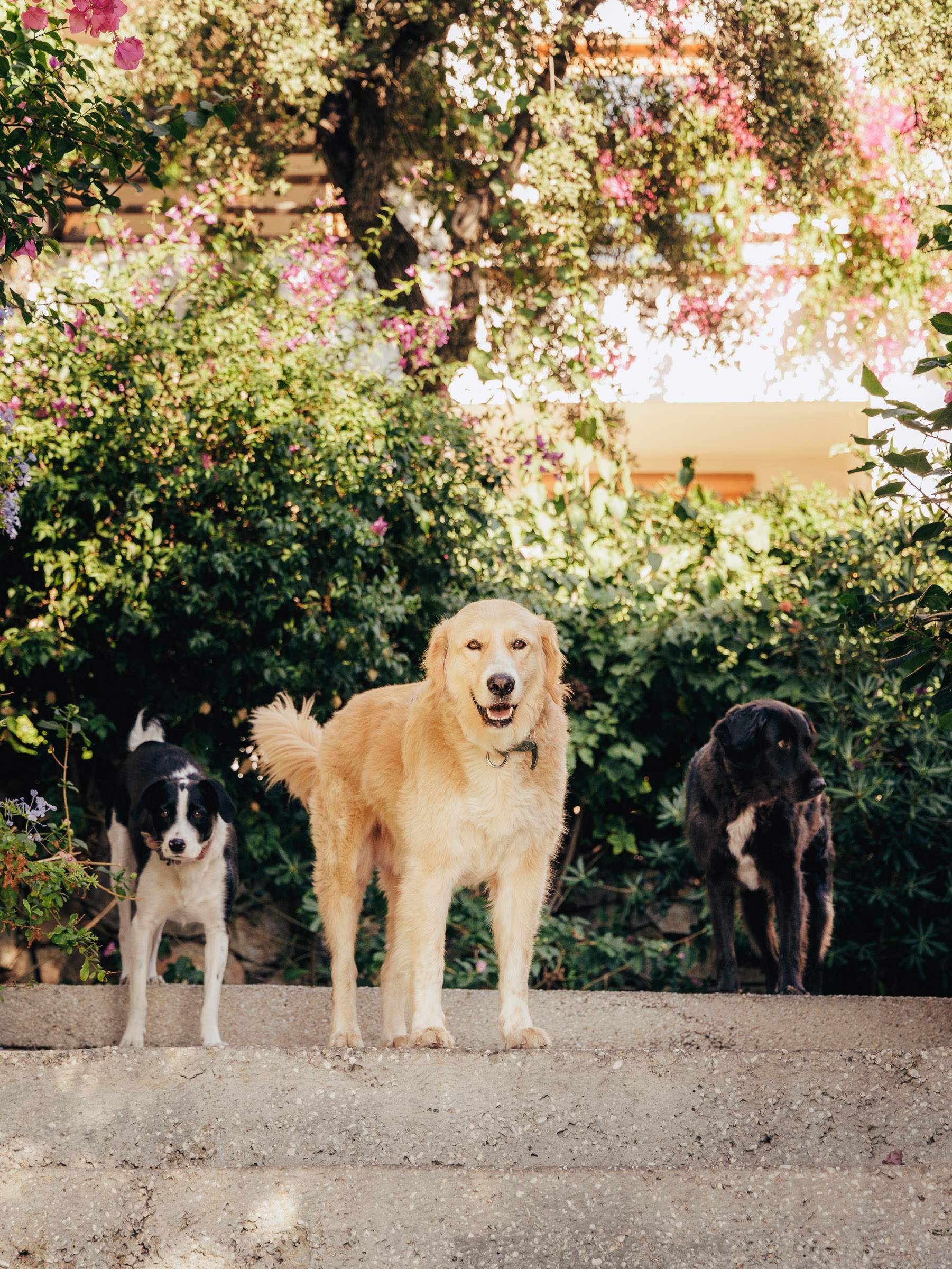
There’s no formal check-in counter or receptionist. Instead, there’s a laid-back lounge where you might find one of the hotel’s three dogs – Alexis, Vasilis and the newest addition, Lucy – running up to greet you or lazily curled up like a pretzel on the plush carpet. Inside the white-painted guest rooms, vintage photographs of social gatherings at Macakizi from Erozan’s mother’s time hang above the beds, which are adorned with colourful Rifat Ozbek-designed pillows.
While Emiroglu laid Macakizi’s foundations and cultivated a community around the brand, Erozan spent many years refining his craft abroad. Before fully committing to Bodrum and Macakizi, he spent some 26 years in Washington, starting from his university years. During that time, he worked in and owned several restaurants. That was how he first crossed paths with Istanbul-born chef Aret Sahakyan, who ran the kitchen at Erozan’s Georgetown restaurant Cities, which was open from 1987 to 2007.
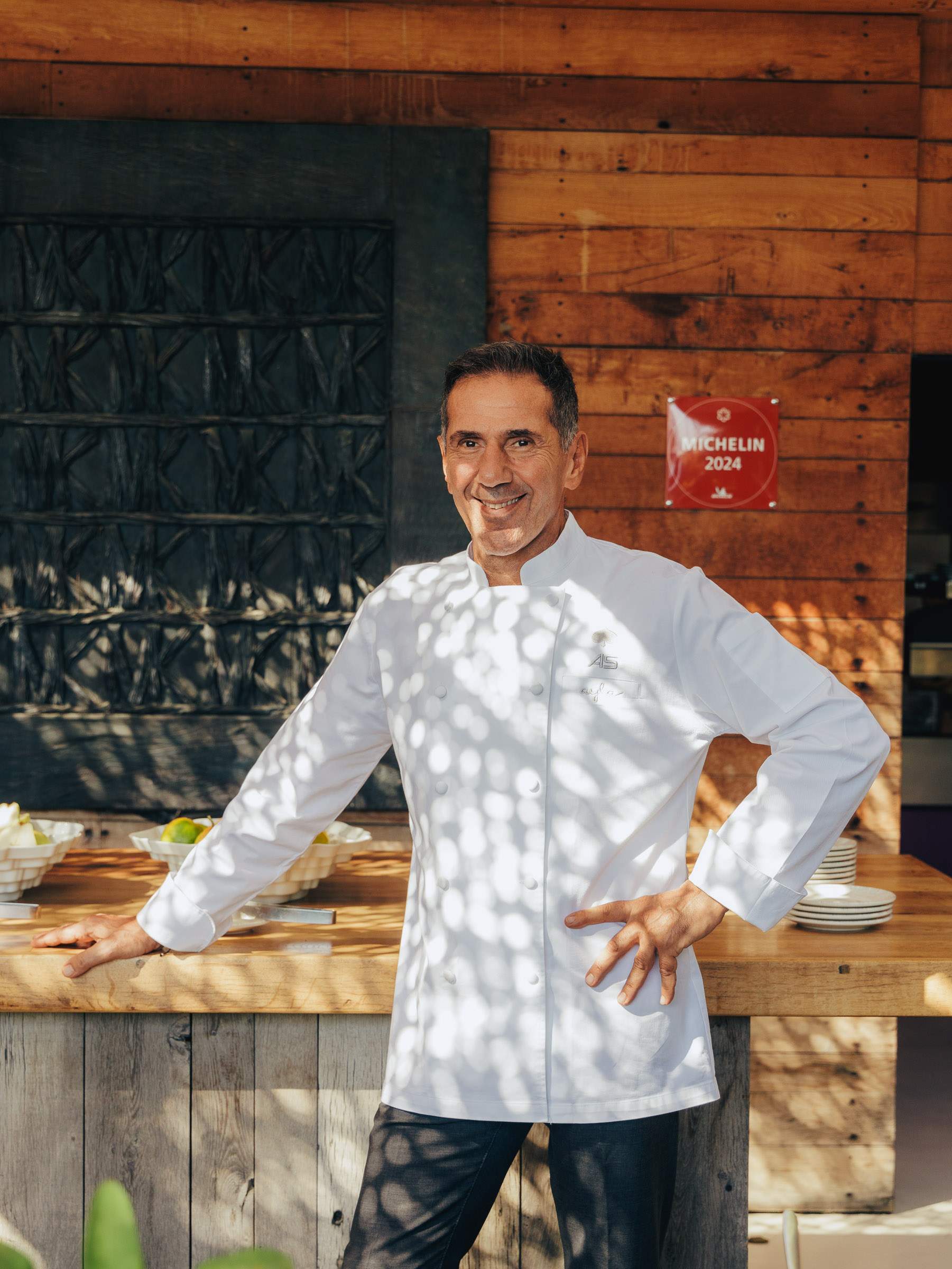
Sahakyan, who trained in French and Italian culinary traditions, has been with Macakizi since Erozan moved back to Turkey. Over the years, he says, the country’s food culture and tastes have changed. “When I arrived, chefs weren’t viewed in the way that they are today. A chef was simply someone who cooked in the kitchen, not someone who crafted and designed dishes.” This summer the Michelin Guide made its debut in Bodrum and Macakizi earned its first star. “We have a concept,” says Sahakyan proudly. “We stay true to it.”
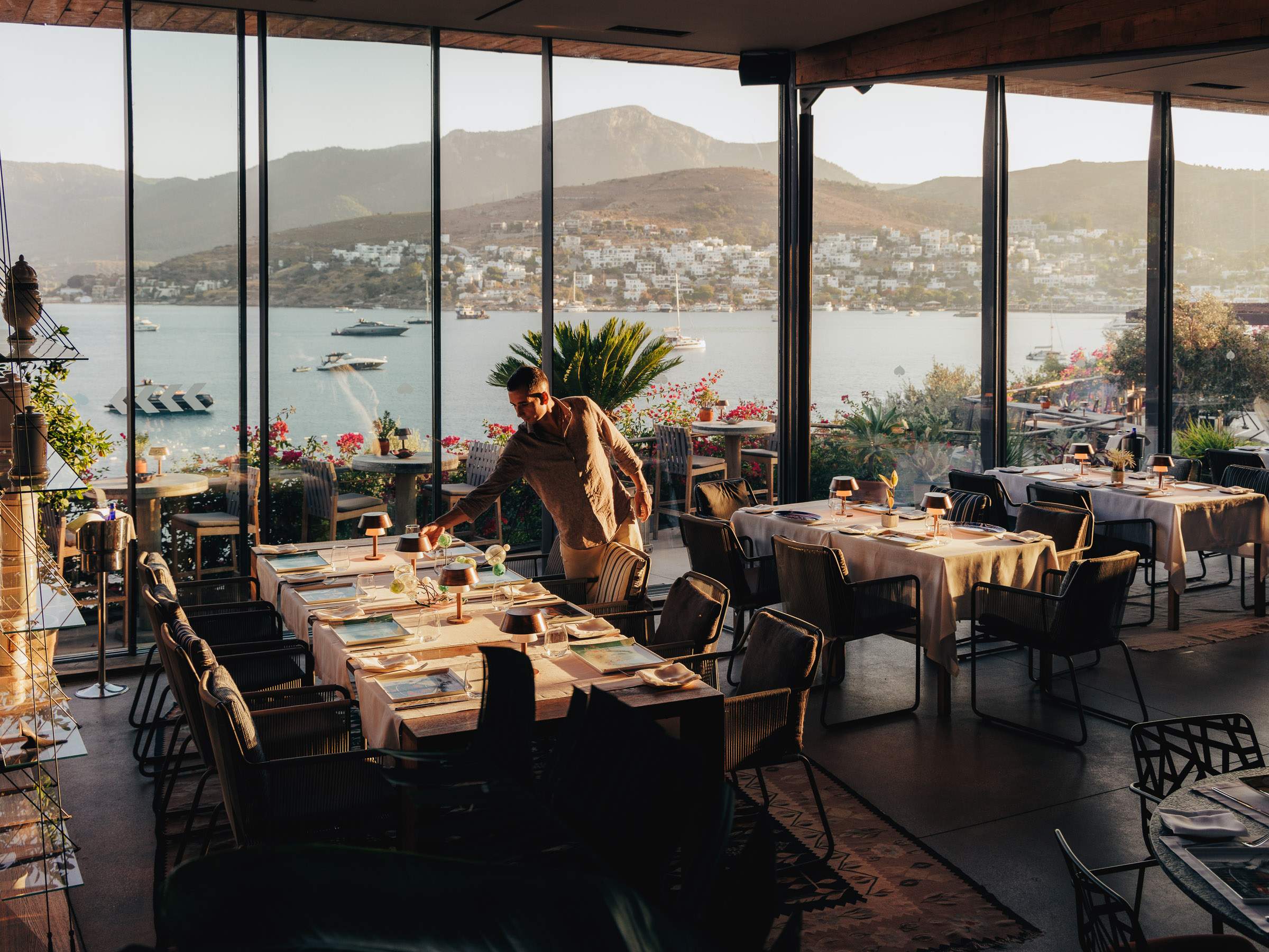
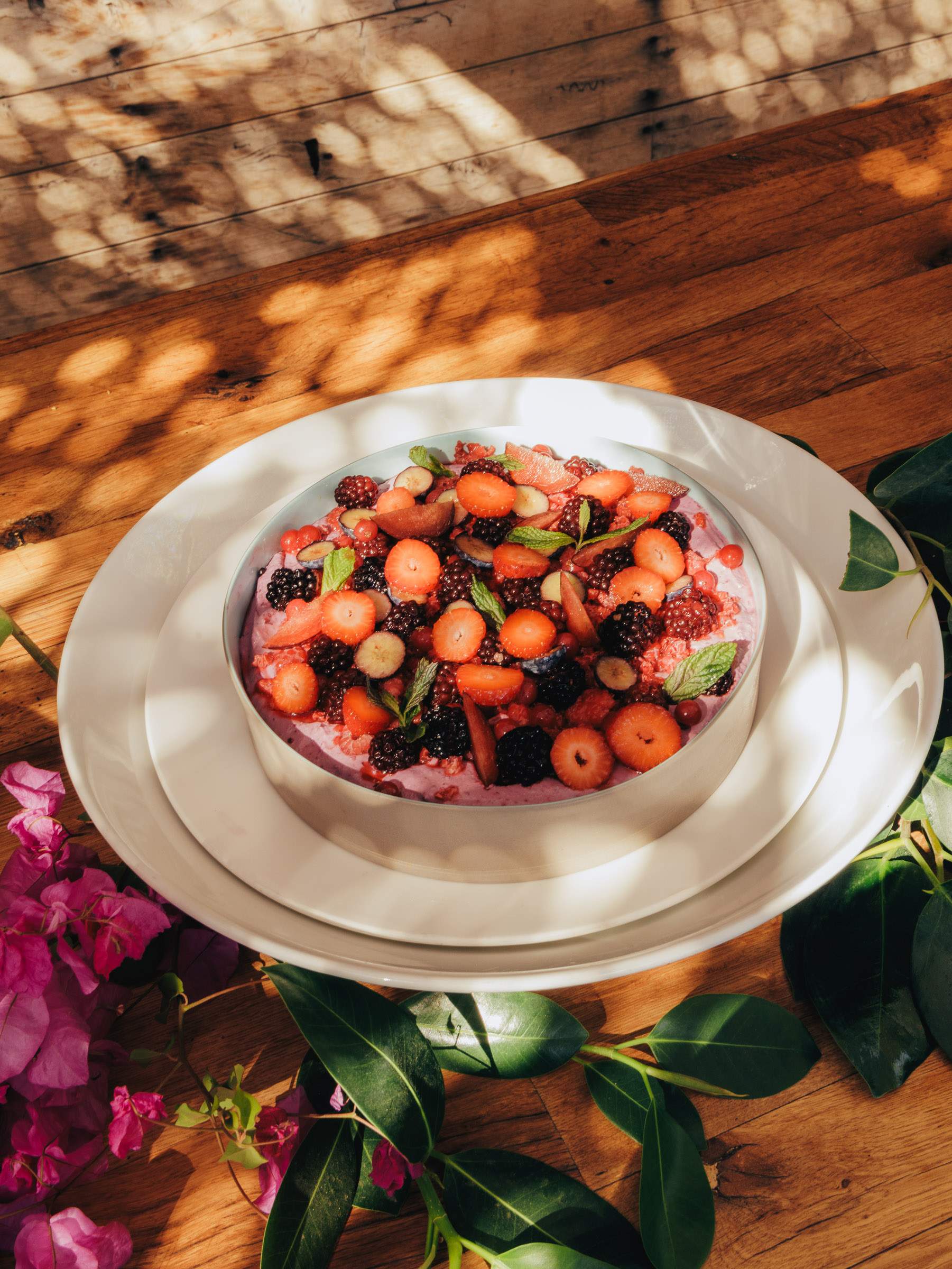
In the busiest season, the restaurant regularly welcomes more than 500 guests for Sunday lunch. Its menu features traditional manti – tender Turkish dumplings filled with ground lamb and topped with yoghurt – made using a recipe passed down from Emiroglu’s time. Sahakyan says that the magic of the manti lies in the yufka (thin flatbread) that accompanies it, carefully layered on a tray and baked until perfectly crisp. This lighter version of the classic dish has become a favourite among regulars.
Erozan inherited more from his mother than the community that she fostered around the hotel and its legacy. She also passed down some of her staff. Ayhan Hanagasi began working at Macakizi as a bus boy and has been with the hotel for 34 years. “Ayla Hanim had high standards and she could be tough but I grew both personally and professionally under her guidance,” says Hanagasi. “She was an endlessly generous teacher.” He was among the staff members invited to an exclusive 60th birthday celebration of a regular hotel guest held at Macakizi over the weekend on which monocle visited.
Bodrum’s global rise in prominence as a luxury-travel destination has brought new challenges. Almost every corner of this breathtaking peninsula is being altered – its trees felled, its ancient heritage looted and the old ways abandoned. The most contentious development has been the Bulgari Resort Bodrum, which is being built in Cennet Koyu (Paradise Bay) on an area of archaeological importance and natural beauty with what its detractors suggest is scant regard for preservation.
So what does Macakizi think about the area’s new popularity – and does it feel a sense of responsibility for its role in Bodrum’s change? Sahakyan believes that it’s all about balance, gesturing to the breakfast bar. “Over there, you’ll find only the highest-quality selections, hand-picked by us and sourced from trusted partners who share our values,” says the chef. “I’m not offering 40 different types of cheese or 50 varieties of honey just to let them go to waste.”
Erozan, meanwhile, explains that the region’s recent success is part of a bigger picture. “First, there’s Turkey’s brand, then Bodrum’s, then that of Macakizi too,” he says. “All three things must evolve in tandem because you can’t thrive in isolation.”
Macakizi was the first beach club in Bodrum to introduce a happy hour but it chose to abandon the tradition this summer. “As a brand, we are always evolving and adapting,” says Erozan. “When we first introduced the happy-hour idea here, it was unique to the area. But now, with many others following suit, it no longer aligns with the direction we want to take.” The owner smiles as the pink-hued sun hovers low in the sky. “Today we’re a more mature brand.” — macakizi.com
Macakizi’s top table
In 2024 the hotel launched Ayla, a new 18-cover restaurant with just five tables, named after Erozan’s mother. “The experience unfolds in three acts, each offering four choices,” says Sahakyan. Over a two-and-a-half-hour sitting, diners are treated to dishes crafted from locally sourced ingredients, including olive oil from Memecik village, honey from Comlekci and blue crab from Datca. Among last summer’s signature dishes were courgette flowers stuffed with Turkish rice and a new take on Macakizi’s beloved manti dumplings filled with fermented salsify, accompanied by yoghurt, chicken broth and oil infused with roasted sumac.
Getting here:
Just a 50-minute drive from Milas-Bodrum Airport, Macakizi has five Land Rover Defenders, each subtly marked with a spade, ready to transport guests anywhere. As you approach the secluded bay where the hotel sits, you’ll leave behind the bustle and find a serene escape.
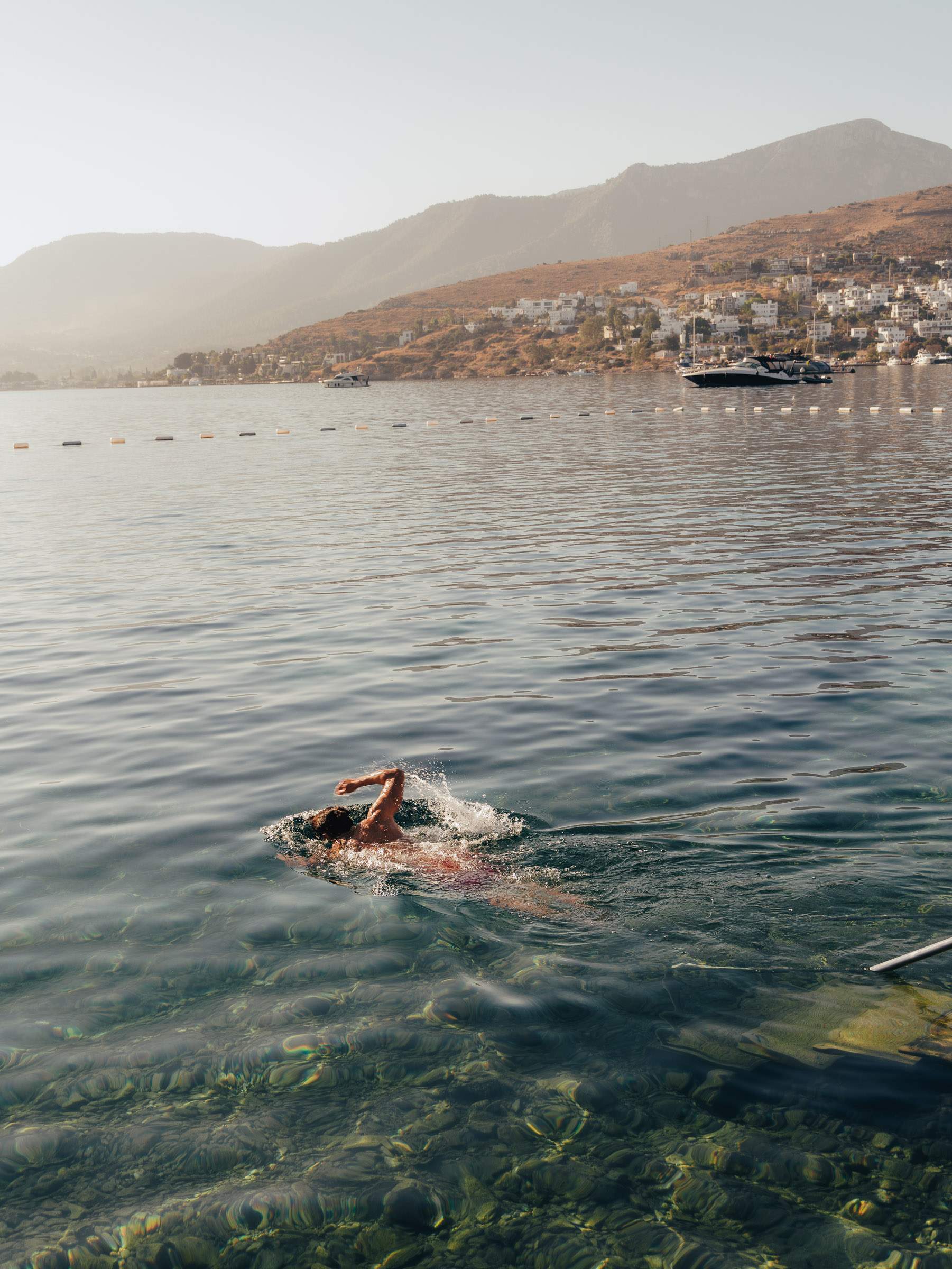
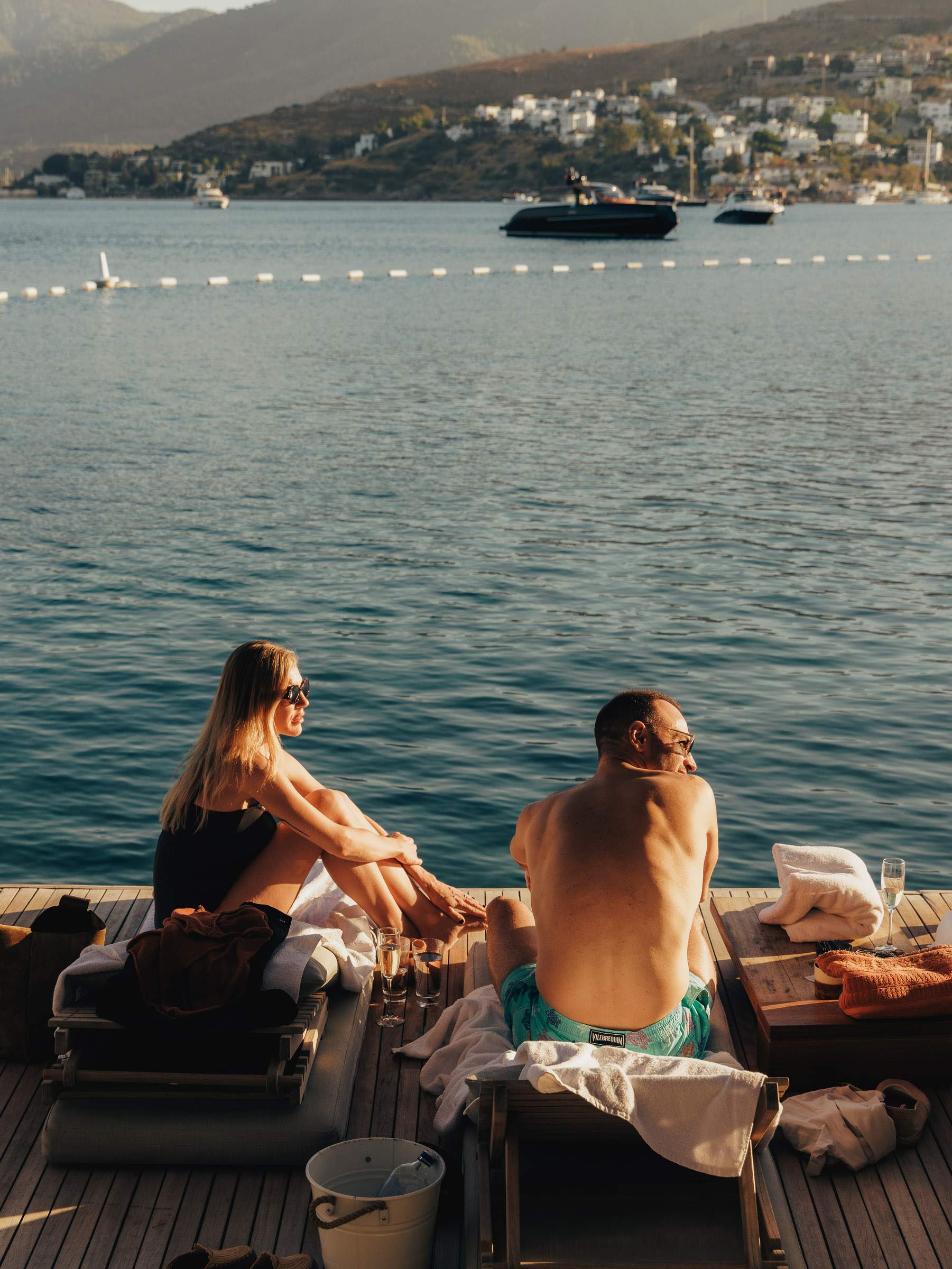
Our pick of Bodrum’s other restaurants
Derekoy Lokantasi
With its classic taverna tables, this restaurant provides a peaceful respite from the bustling crowds. Try its refreshing starters, such as labneh with green olives.
Derekoy, Derekoy Yolu No: 133, 48960 Bodrum
Bagarasi
Set amid a citrus orchard, Bagarasi is a fine ambassador of Bodrum’s cuisine. Its menu features the freshest ingredients sourced from local markets. Don’t miss its artichoke with ice cream.
Bitez, Pınarli Caddesi No: 59, 48470 Bodrum
Kurul Bitez
An ocakbasi spot in a converted stable that serves up authentic Turkish barbecue, despite having the ambience of a French bistro.
Bitez Mahallesi 1936 sok No: 2, 48470 Bodrum
Orfoz
This family-run fish restaurant and meyhane (tavern) showcases whatever the fishermen netted, including sea snails in wine sauce.
orfoz.net
Lucca by the Sea
For the past two decades, Lucca has drawn crowds in Istanbul’s vibrant Bebek district. Now it has opened a new site at Bodrum’s Mandarin Oriental.
luccabythesea.com
Limon
The best sunset in Bodrum. Whether you’re here for breakfast or sunset drinks, it’s timeless. Book early.
limongumusluk.com


